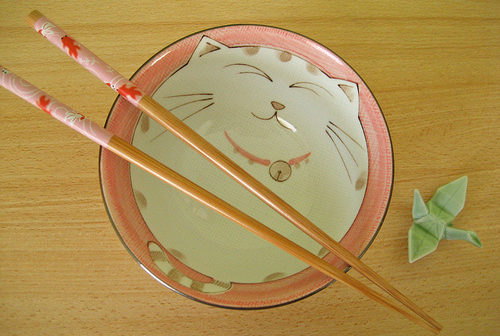The rules can seem endless sometimes. Ganbei with your glass lower than your host’s, never stick your chop sticks into your rice, leave a little bit of food on your plate: China has its own way of doing things, and of course, it’s only right to respect this by following suit.
But what about some of ‘less cherished’ cultural customs? Should we be expected to cut in line, not give pedestrians the right of way, and treat waiters as nameless servants? Certainly not. But the question of etiquette then becomes: is it proper to try and correct behavior that we perceive as rude?
I ask this because I do call people out on these things. I can’t discern whether my ethical stance is having a good affect on China and the local’s image of foreigners. Does my calling someone rude for cutting in line help in any way? Does telling a person that it’s rude of them to run in front of me for the taxi I hailed make me a sore loser? Does my slowing pace in front of a car who’s trying to honk its way through the pedestrian crossing make me a jerk? Most importantly: do these acts help to make Beijing any more copacetic when you’re a foreigner telling locals what to do?
This is the cultural-custom gray zone, and I really wish someone would write an etiquette guide concerning these finer points.
The reason I started thinking about this is the latest etiquette guide in the China Daily (excerpt below).
Although this is very useful information, I don’t know whether to feel bad about calling that lady a ‘silly girl’ when she stole my cab.
Addressing Peers
When addressing someone for any reason, it is expected that you address them with their official title. If they hold a position, such as ‘General’, then refer to them as that. If they do not, however, or if you are unaware of their position, you should refer to them as Mr./Mrs./Ms plus their last name. Don’t call them by their first name unless invited to do so.
How to Act
Every culture has its rules on how you are to act, and China is no different. In China, to greet someone, you nod your head, or you bow slightly. Handshakes are also common, but you should wait for your Chinese partner to initiate the motion.
Don’t Touch
This is common in many Asian countries, and is the direct opposite of those found in Western society. Chinese people do not enjoy being touched by strangers. Don’t touch someone unless you absolutely have to.
Respect the Elders
As a Confucian rules, the elders are to be respected in every situation by those who are younger. You should always acknowledge the elder in a group first, and show the most respect to that person.
Keep Your Hands out of Your Mouth
Putting your hands in your mouth is considered to be vulgar in Chinese culture, and should not be done. This includes biting your nails.




